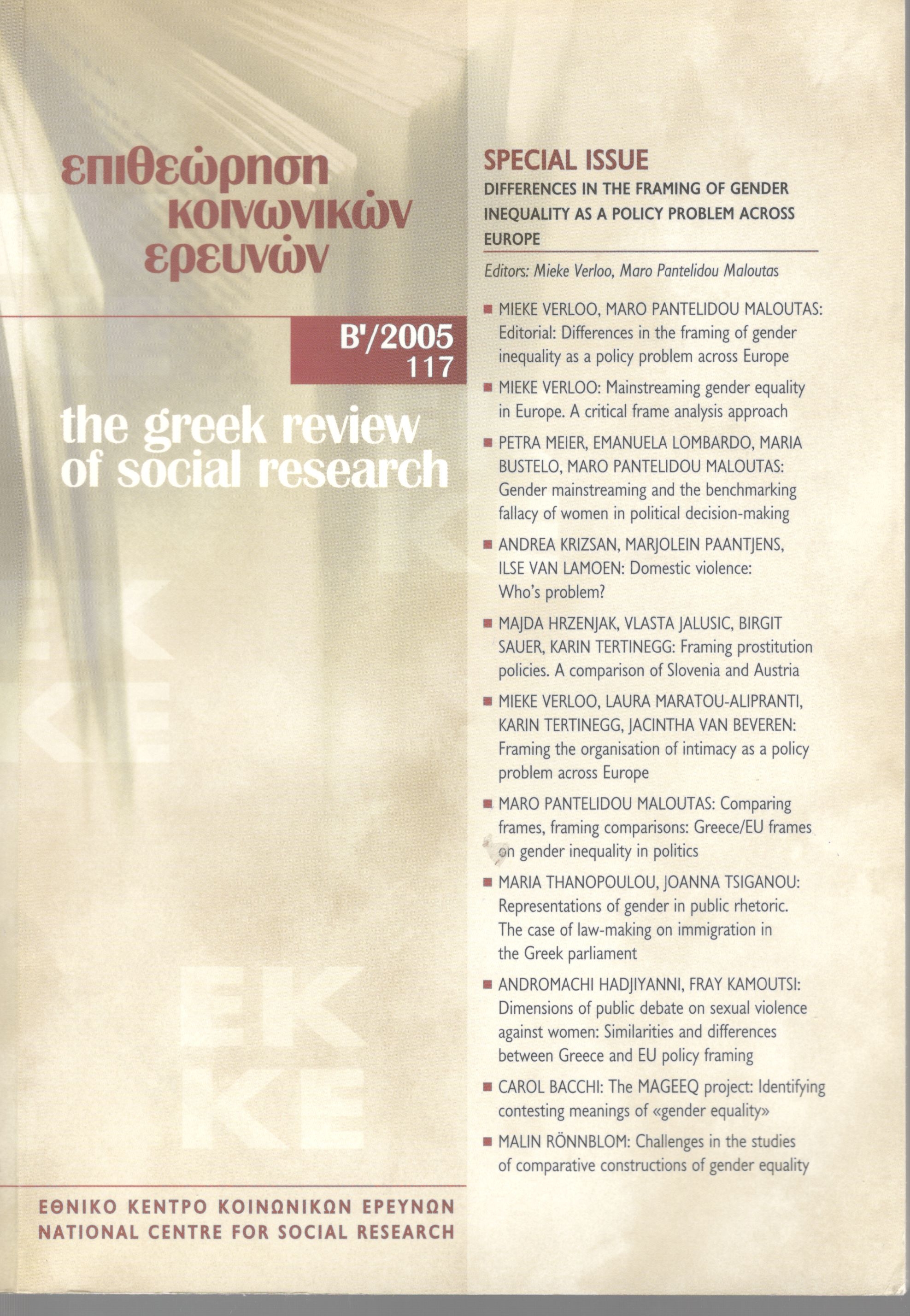Framing the organisation of intimacy as a policy problem across Europe
Abstract
This article analyzes how the issue of gender inequality has been framed in connection to families and family policy, especially in the European Union, the Netherlands, Austria and Greece. The period studied is 1995-2004. The analysis shows that the focus is primarily on the division of paid labour as the diagnosis of the policy problem that should be addressed by family policies. Accents on presenting the division of unpaid labour or care as a problem are scarce, and seem to be found mainly in the 1990s (in the Netherlands, Austria and at the EU level). Moreover, the absence of attention for gender inequality within families is a problem in itself. The analysis also shows attempts to legitimise gender equality by linking measures originating in gender equality policies, such as child care services, part time work and parental leave with other goals such as flexible labour, more employment, more children or better functioning families. In these linkages, it is striking that in all of the analysed countries, and even at the EU level, a traditionalisation of thinking about families and the role of women in families can be detected. With the exception of Greece, this seems to be a retraditionalisation. These (re)traditionalised frames redirect measures such as reconciliation towards goals that could very well be contradictory to gender equality.
Article Details
- How to Cite
-
Verloo, M., Alipranti, L. M., Tertinegg, K., & Beveren, J. V. (2016). Framing the organisation of intimacy as a policy problem across Europe. The Greek Review of Social Research, 117, 119–147. https://doi.org/10.12681/grsr.9560
- Section
- Articles

This work is licensed under a Creative Commons Attribution-NonCommercial 4.0 International License.
Authors who publish with this journal agree to the following terms:
- Authors retain copyright and grant the journal right of first publication with the work simultaneously licensed under a Creative Commons Attribution Non-Commercial License that allows others to share the work with an acknowledgement of the work's authorship and initial publication in this journal.
- Authors are able to enter into separate, additional contractual arrangements for the non-exclusive distribution of the journal's published version of the work (e.g. post it to an institutional repository or publish it in a book), with an acknowledgement of its initial publication in this journal.
- Authors are permitted and encouraged to post their work online (preferably in institutional repositories or on their website) prior to and during the submission process, as it can lead to productive exchanges, as well as earlier and greater citation of published work (See The Effect of Open Access).



